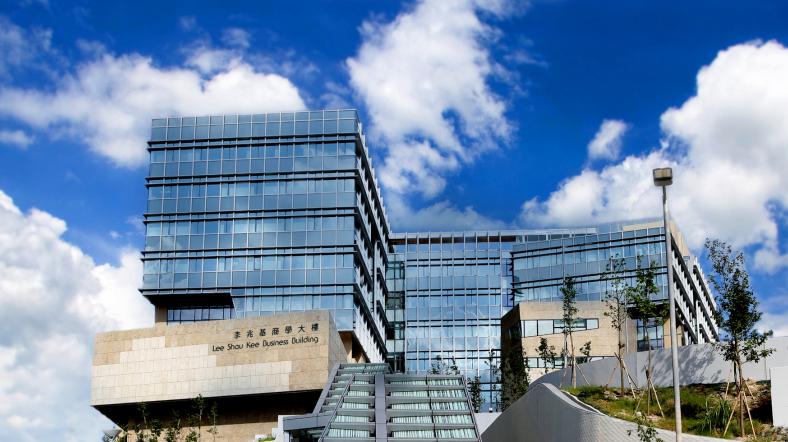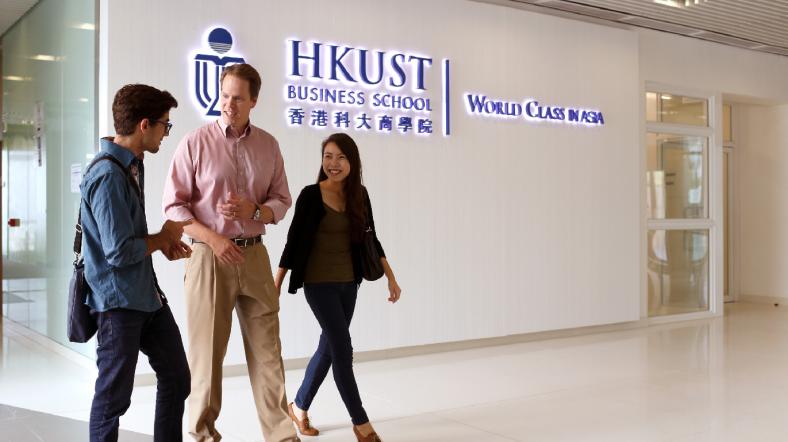Insights for doing business in China
Chris Pereira spent the better part of two decades conducting business in China. Before leaving, he got his MBA from HKUST Business School. He shares with us his insights from his time abroad.
Challenges of doing business in China
The Asia-Pacific region will take the economic spotlight from North America and Europe in very little time. Understanding how business is done in places like mainland China and Hong Kong will be the key to long-term success.
Companies moving from East to West, or West to East have to contend with vastly different social and legal landscapes. Staying compliant with regulations is a massive challenge that requires specialized knowledge. Additionally, a lack of cultural understanding can be particularly challenging. As a Canadian who lived in China for 15 years, and now based in New York, Chris is one of the few East-West business specialists.
In his professional life, Chris has always served as a bridge between cultures. He found a place in translation and cross-cultural communication roles in Chinese companies. After completing his MBA at the Hong Kong University of Science and Technology Business School (HKUST), he could take things to the next level and start his own company. Chris is now the founder and CEO of Impact, helping businesses from the Asia-Pacific region with PR and marketing in Canada and the US.
Chris shares with us his insights into doing business in China.
Designed in California, Assembled in China
The relationship between business in the West and China is complex and multifaceted. China opened its doors to global businesses to urbanize its population and lift millions out of poverty. For decades, the main interest of westerners doing business in China was to set up manufacturing facilities. For example, Apple became the most valuable company in the world thanks to the favorable manufacturing conditions in China. It was a win-win scenario, with western capital accelerating Chinese development.
Chris has experienced the rapid development of China first-hand. As an English literature student back home in Canada, Chris first developed an interest in Asia. He soon recognized biases when he first went to China in 2004.
“I was expecting to see a very rural, agrarian society. Seeing a lot of farmers working on that rice fields, that sort of thing,” Chris says, “but when I got to Beijing, I remember looking out at the skyline from my first hotel, and there were literally hundreds of cranes working on buildings. The city was growing up as I was watching it, basically – enormous growth and a lot of opportunities. Something clicked in my mind to say, ‘Hey, I think I should stay.’” (3:55)
Chris turned his thoughts into actions. He enrolled as a Chinese Language and Literatures student at Zhengzhou University, became fluent in Mandarin, and stayed for another 15 years. He was well-positioned to witness the further transformation of the 21st-century Chinese economy.
Designed in China, Made in China
China leaped from an agricultural to a modern industrial economy in record time. It is now the second-largest economy in the world, behind the United States, and will soon be the largest. Chinese businesses are reaping the rewards from the lessons learned from working for others.
Over the last 40 years, it’s become possible for a city like Shenzhen to go from a fishing village to a “metropolis Tech Capital, the Silicon Valley of China.” (1:55)
While China is still a manufacturing powerhouse, it is also giving western businesses even-footed competition in the tech industry as home-grown firms expand to the global stage. TikTok has overtaken Meta’s Facebook and Instagram in popularity among teens. It’s likely nothing short of government intervention will reverse that trend as social media moves away from written to video content.
Is doing business in China getting harder?
Western businesses are finding it harder to do business in China as they face competition that was there years ago.
Still, business is about creating a win-win situation for stakeholders. With rapid advancement comes new avenues for joint ventures between Chinese and western businesses. It can be hard to find a winning solution when there’s a lack of trust. But when trust is there, you’ll be inclined to understand intentions before jumping to the wrong conclusion.
Of course, how trust is built changes between cultures.
As an example, Chris shares an anecdote of a time he was at a business dinner with a Canadian in China. “The Canadian sat next to the Chinese business partner. And the Chinese business partner, because he was welcoming his guest … took some food from the middle of the table and put the food onto the Canadian’s plate.” The Canadian felt like he was being treated like a kid who didn’t know how to use chopsticks.
In reality, the Chinese business partner meant to show the utmost respect. Chris explains the action as “I care about you, I’m going to get your food for you first before I give it to myself.” (24:26)
Designed in China, Made in China
Hong Kong, in particular, has played a crucial role in facilitating the flow of business between China and the West. Its unique history and political status positioned it as a bridge for outsiders to mainland China. As such, many foreign companies have headquarters there. With the influx of capital comes an influx of talent that’s further developed by some of the best universities in the world.
“Hong Kong has reinvented itself many times over the last few decades. Hong Kong never has it easy, whether it’s from geopolitics or an economy altered, there’s always challenges,” Chris tells MBAGRADSCHOOLS. “In some ways, the experience of Hong Kong is the experience of an entrepreneur. The harder challenges you face, the stronger and better you get over time. And I think that that’s why Hong Kong is strong.” (14:00)
Innovation is part of Hong Kong’s nature, culture, and people. That’s evidenced by the thriving entrepreneurial scene, which was home to 18 unicorns in 2021.
The local government plans to maintain its attractive position well into the future. The InnoHK initiative will commit over US$1 billion to its development as an innovation hub with deeper connections to the mainland. The initiative sees the government, industry, and schools like HKUST working together to support early-stage start-ups.
HKUST creates a network of entrepreneurial alumni
Chris enrolled in HKUST Business Schools’ MBA program because he knew they’d prepare him for running his own business. Though, his takeaways didn’t end with increased business acumen. “I think what I got out of HKUST was much more than I thought I would, and more than I expected.” (2:52)
One unexpected lesson was how important building trusting friendships with classmates is. Being surrounded by ambitious people who worked hard pushed Chris’ ambitions to new heights.
“The relationships that you develop, doing homework with your classmates, working on different projects, hearing what they’re doing in their careers. That opens up all kinds of new ideas,” Chris explains. “So when you go into the MBA you think you’re going one way but when you meet the classmates that are with you, who are also ambitious, are working in the middle of a growing career also, that can lead to so many new ideas.” (8:46)
The classmates and alumni of HKUST became Chris’s role models as he jumped to become an entrepreneur. The network proved invaluable as they introduced talent to hire, and provided feedback along the way.
“I asked a bunch of my classmates who are in finance, ‘Hey, can you look at my pitch deck?’ Because I’ve never made a pitch deck before, I’m not a finance guy,” Chris shares. “So I got feedback from them. They said, “It’s terrible, rewrite it. Make it again.’” (13:10) Chris credits time doing homework together as the reason why he was able to get so much honest, critical feedback.
Interested in doing business in China?
Despite the challenges, the connection between business in the West and China remains strong. If you’re interested in doing business in China, Chris can’t recommend a better place to start than doing an MBA at HKUST. The university’s network of alumni and location in Hong Kong make it a great place to start a new chapter of your career.
Be sure to reach out to other HKUST alumni from their ambassadors page.
Watch video: https://www.youtube.com/watch?v=0qtblIaqKdM&t=313s



















